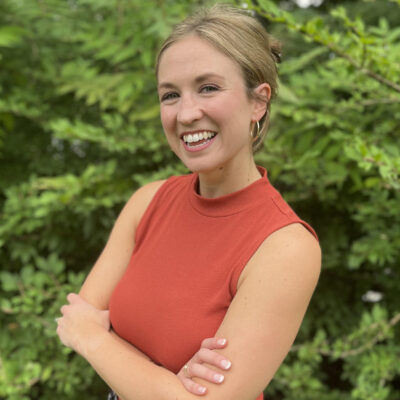Student Spotlight: Kristie LeBeau

December 18, 2023
Kristie LeBeau is a doctoral candidate in development studies from Wolcott, Indiana. She earned her B.A. in sociology at Saint Mary’s College and her M.S. in development sociology at Cornell University and now studies the relationships between schools and communities under the guidance of John Sipple at Cornell.
What is your area of research and why is it important?
My work examines the education system outside the four walls of a school. Schools are embedded in communities and students are embedded in families. Therefore, I examine the relationships between schools and communities to determine how school and community leaders can work together to improve community vitality and educational equity. For example, in my dissertation, I am exploring a new teacher salary policy in Indiana to better understand the policy’s impact on the local community. Schools are often large employers in communities, and I aim to better understand how salaries multiply in local and surrounding economies.
What are the larger implications of this research?
One of my goals as a scholar is to conduct research that informs “community-aware education policies.” This phrase, coined by my colleagues (Casto et al., 2016), stresses the need for education policies that consider the influence that policies have on local communities. In my dissertation research, I aim to better understand how a one-size-fits-all state policy has differential impacts on varying school-communities to inform future policies that address spatial and economic disparities across places.
Where did you study with your Graduate School Research Travel Grant?
I conducted research across the state of Indiana with my Graduate School Research Travel Grant. This grant allowed me to visit rural school districts across the state, talking with superintendents and school business officials about the implementation of Indiana’s new $40,000 minimum teacher salary policy.
How important was obtaining a Research Travel Grant for your research?
The Research Travel Grant was crucial in providing the funds necessary to travel between Ithaca and Indiana, drive across the state, and pay for accommodations within communities.
President Pollack has designated this academic year’s theme as freedom of expression. What does freedom of expression mean to you?
As a scholar and instructor, I aim to create an environment in which a diversity of perspectives is amplified and celebrated. When considering this year’s theme of freedom of expression, this is what comes to mind—creating an environment in which diverse perspectives are welcomed and a sense of belonging is felt by all.
What are your hobbies or interests outside of your research or scholarship?
Outside of my scholarship, I love to play basketball! I am a part of the Ithaca Women’s Basketball group, and we play pickup games once a week. It is a great way to blow off steam, get a good sweat in, and be surrounded by a group of empowering women.
Why did you choose Cornell to pursue your degree?
Cornell’s land grant mission, and my field’s commitment to rural research, motivated me to choose Cornell to pursue my degree. Additionally, the interdisciplinary nature of my field really excited me, knowing that I would be working with individuals with a range of interests on a daily basis.
